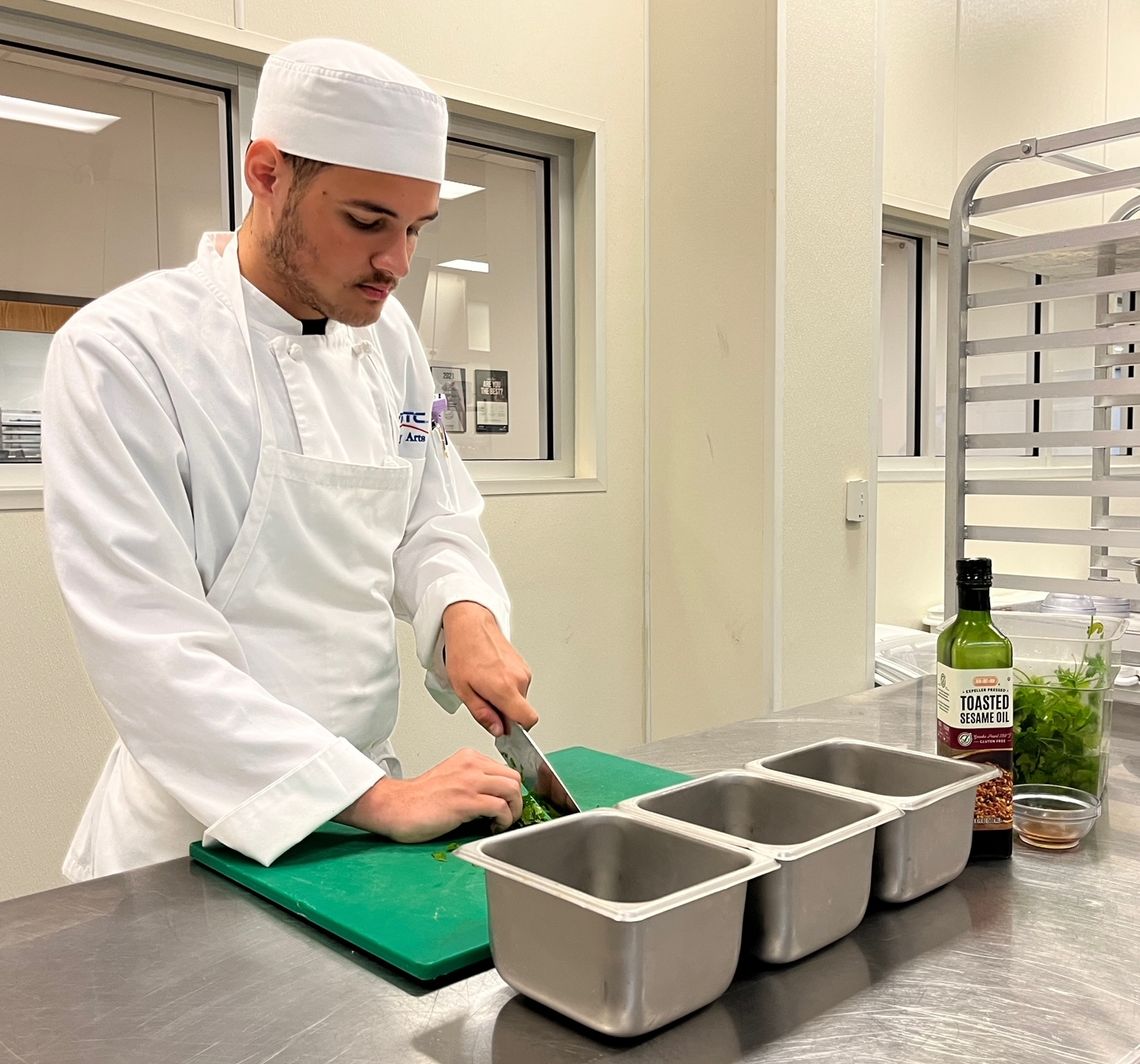HUTTO – Brad Herridge, a performance-based education mentor at Texas State Technical College’s East Williamson County campus, has been allergic to certain forms of dairy since he was a baby.
He manages his food allergy by avoiding Italian food and has learned how to order Mexican food without dairy products. So it is a “no” to enchiladas but a “yes” to pizza without cheese, along with barbecue, most sushi and several Asian dishes.
“It requires me to be a little picky,” Herridge said.
A food allergy is a medical condition in which exposure to a certain food substance triggers a harmful immune response, which is an allergic reaction. The proteins that trigger the reaction are called allergens. The nine major food allergens are crustacean shellfish, eggs, fish, milk, peanuts, sesame, soybeans, tree nuts, and wheat, according to the U.S. Food and Drug Administration.
TSTC’s Culinary Arts students learn about preventing food allergy reactions in the Sanitation and Safety class and the Nutrition for the Food Service Professional class. The classes are taught online by Martha Rivera, lead instructor of TSTC’s Culinary Arts program in Waco.
In the Sanitation and Safety class, students take a food manager test from ServSafe, which partners with the National Restaurant Association, to earn a five-year certification showing that they have the knowledge of how to prevent food-borne illness outbreaks and manage all aspects of a commercial kitchen.
Rivera said it is important for servers at restaurants to be able to explain to customers what the ingredients are in every menu item. This information is then passed on to kitchen staff, who must work to ensure that the correct, allergen-free food is served.
Some of the work involves changing gloves, sanitizing all equipment and keeping various foods separate, said Chasey Davis, an instructor in TSTC’s Culinary Arts program at the East Williamson County campus.
Davis said some adaptations for food allergies can include using applesauce to substitute for eggs in baking recipes, and aquafaba, the liquid from chickpeas, as a replacement for egg whites or whipped into a meringue.
Canola oil and vegetable-based oils can be used in place of sesame oil.
“Sometimes you have to be careful because (an oil) can be blended,” Davis said.
The Food Allergy Research and Education (FARE) organization estimates that more than 32 million Americans have a food allergy. This includes one in 10 adults and one in 13 children, according to FARE.
FARE estimates that a person goes to the emergency room every three minutes in the United States for a food allergy reaction. Most fatal food allergy reactions are triggered by food consumed outside of the home, according to the organization.
TSTC is proud to observe Food Allergy Action Month, which brings awareness to food allergies and promotes kitchen safety. The month also puts an emphasis on reading food labels and preventing cross-contamination.
Registration continues for the fall semester at TSTC. For more information, visit www.tstc.edu.




